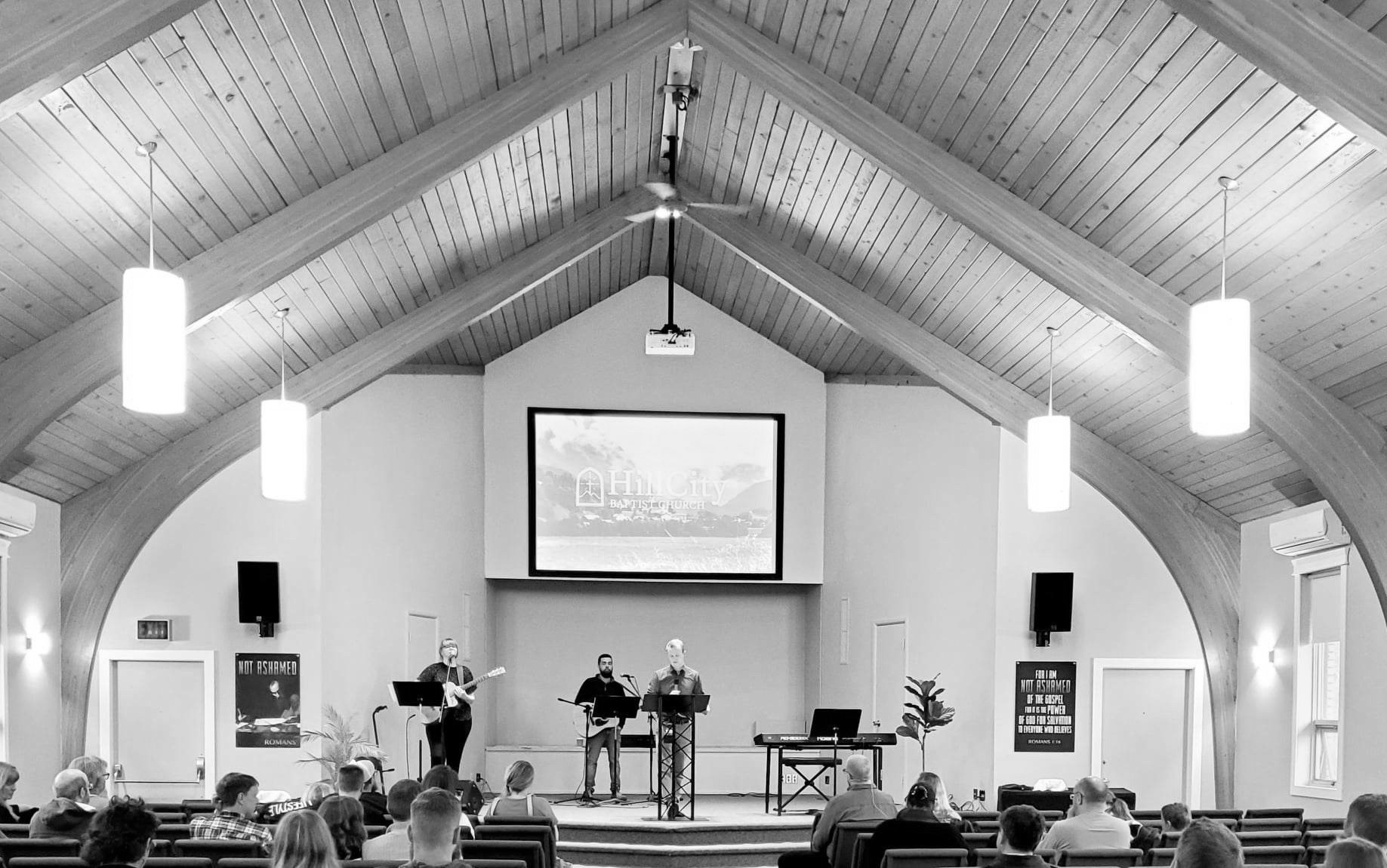Welcome!
At Hill City Baptist Church, we place a high priority on expositional preaching, regular Bible teaching, meaningful membership, and accountable relationships. Though we gather every Sunday for corporate worship, opportunity for member fellowship also continues throughout the week in our small groups and regular times of prayer.
We are not interested in selling a product nor in winning anyone with various programs or spiritual exhibits. Rather, we make it our aim to proclaim and contend for, “the faith that was once for all delivered.” To put our ministry strategy clearly, we would echo the apostle Paul in 2 Corinthians 4:2, "We have renounced secret and shameful ways; we do not use deception, nor do we distort the word of God. On the contrary, by setting forth the truth plainly we commend ourselves to everyone’s conscience in the sight of God."
Hill City Baptist Church originally began a church plant called The Gathering in 2009 through a partnership between Auburn Bible Chapel and Trent Christian Fellowship (a student group at Trent University). We became autonomous in 2013, adopting our own constitution, and have continued worshipping together ever since. Though we have always been a sojourning church (we have worshipped in many locations since our inception) we thank God for his faithfulness in the midst of it all and look forward to his continued preservation in the future.
The following values help shape our church:
We are a Bible-Based church:
We believe the Holy Scriptures (The Bible), being the very Word of God, are infallible and binding on all people at all times. It is not the duty of the Scriptures to adapt to continually fluctuating social norms but rather for cultural norms to reflect and conform to the Scriptures. Our primary concern, therefore, is not to be on the so-called “right side of history,” but on the right sight of God’s decrees.
We are a Member-focused church:
We live in a time where the individual reigns supreme. They are the final judge of right and wrong — to the extent that now even biological reality must submit to what an individual “feels” to be true. According to this way of viewing the world, self-expression and “authenticity” are the most important qualities and others are to be rejected when they do not affirm or validate our feelings.
When we turn to the Bible, however, we are confronted with a different, more honest, picture. Being that we are so easily decieved, we are not actually safer on our own. Church membership in the New Testament builds on something we see repeatedly throughout the Old Testament: covenant relationships. Thomas Schreiner defines a covenant as: a chosen (voluntary) relationship in which two parties make binding promises to each other (for example, a marriage). Covenant relationships in the Bible are characterized by faithful, loyal love to their covenant partner.
A key feature of this kind of relationship is its determination to act for the other’s good even when it requires sacrifice. We believe it is in the context of this kind of relationship that Christian discipleship actually occurs; thus we place a high value on membership.
We believe in all of Christ for all of life:
There has been a sad truncation of "Gospel" over the last fifty years in the West. Sadly, phrases like a gospel-centered have become less a principle for life and ministry and more of a shibboleth, signalling to certain groups that we are of the good and "reformed" camp. In many cases, it also signals a pietistic and retreatest impulse into the inner world and experience of the individual. This function of this retreat has meant swaths of the public sphere are now devoid of Christian witness and resigned to godlessness and materialism.
We believe that Christ is Lord and that he is now reigning; there is no sphere that is excluded from this reign. This means that there is no area of thought exempt from his Word. Acknowledging this fact is both glorifying to God and empowering for Christian discipleship and witness.
A more thorough explanation of our beliefs can be found in our Confession of Faith, Constitution, and Covenant. Though we do not accept creeds and confessions as infallible, they are a useful anchor in theological controversy and are practical documents for summarizing orthodox systems of Christian thought.
